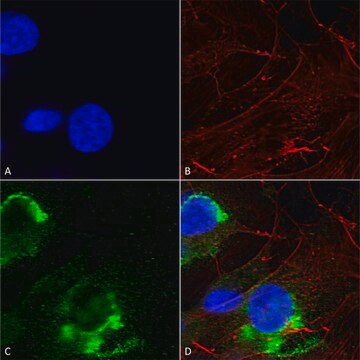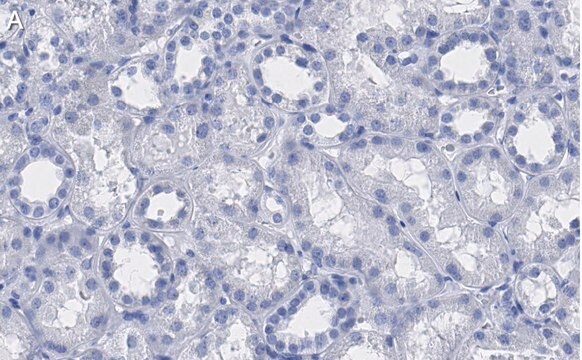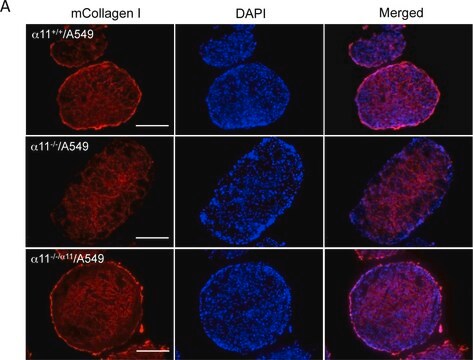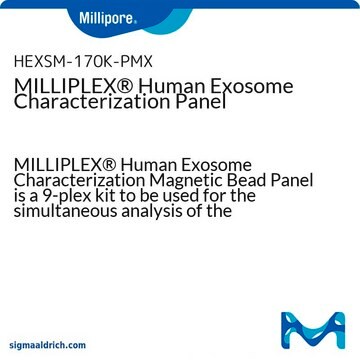MABN40
Anti-LRRK2 Antibody, clone N138/6
clone N138/6, from mouse
Synonim(y):
leucine-rich repeat kinase 2, DARDARIN, augmented in rheumatoid arthritis 17, Parkinson disease (autosomal dominant) 8, Dardarin
About This Item
WB
western blot: suitable
Polecane produkty
pochodzenie biologiczne
mouse
Poziom jakości
forma przeciwciała
purified immunoglobulin
rodzaj przeciwciała
primary antibodies
klon
N138/6, monoclonal
reaktywność gatunkowa
human
reaktywność gatunkowa (przewidywana na podstawie homologii)
mouse (based on 100% sequence homology)
metody
immunohistochemistry: suitable
western blot: suitable
izotyp
IgG1κ
numer dostępu NCBI
numer dostępu UniProt
Warunki transportu
wet ice
docelowa modyfikacja potranslacyjna
unmodified
informacje o genach
human ... LRRK2(120892)
Opis ogólny
Specyficzność
Immunogen
Zastosowanie
Jakość
Immunohistochemistry Analysis: 1:300 dilution of this antibody detected LRRK2 on 10 µg of human placenta and Parkinson′s diseased vascular brain tissue.
Opis wartości docelowych
Postać fizyczna
Komentarz do analizy
Human placenta and Parkinson′s diseased vascular brain tissue
Inne uwagi
Nie możesz znaleźć właściwego produktu?
Wypróbuj nasz Narzędzie selektora produktów.
Kod klasy składowania
12 - Non Combustible Liquids
Klasa zagrożenia wodnego (WGK)
WGK 1
Temperatura zapłonu (°F)
Not applicable
Temperatura zapłonu (°C)
Not applicable
Certyfikaty analizy (CoA)
Poszukaj Certyfikaty analizy (CoA), wpisując numer partii/serii produktów. Numery serii i partii można znaleźć na etykiecie produktu po słowach „seria” lub „partia”.
Masz już ten produkt?
Dokumenty związane z niedawno zakupionymi produktami zostały zamieszczone w Bibliotece dokumentów.
Nasz zespół naukowców ma doświadczenie we wszystkich obszarach badań, w tym w naukach przyrodniczych, materiałoznawstwie, syntezie chemicznej, chromatografii, analityce i wielu innych dziedzinach.
Skontaktuj się z zespołem ds. pomocy technicznej








